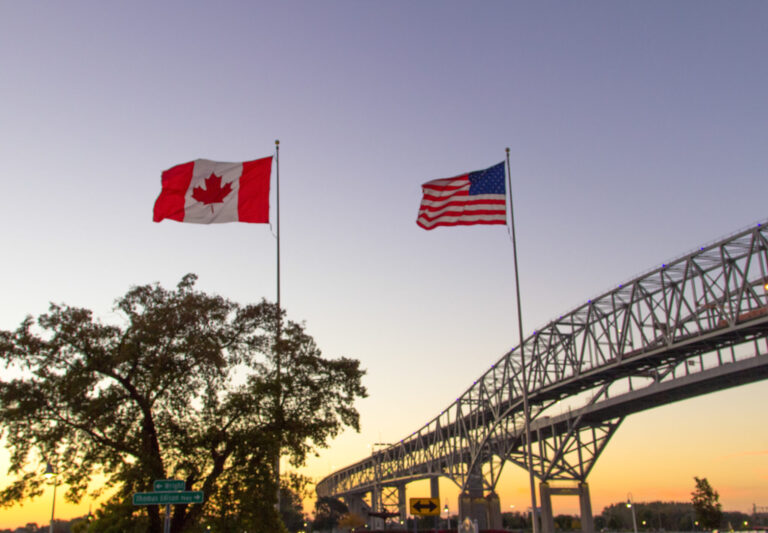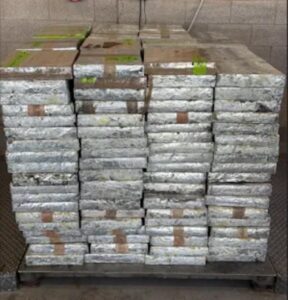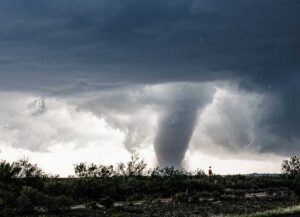UPDATED: March 18, 12:10 pm CT
President Trump announced in a tweet this morning, “We will be, by mutual consent, temporarily closing our Northern Border with Canada to non-essential traffic. Trade will not be affected. Details to follow!”
Prime Minister Trudeau stated, “I just spoke to President Trump again this morning and we have agreed that both Canada and the United States will temporarily restrict all non-essential travel across the Canada-U.S. border. Our governments recognize that it is critical we preserve supply chains between both countries.”
Trucking will not be affected by this new development
Last Friday, the Canadian parliament ratified the U.S.-Mexico-Canada Agreement (USMCA), a replacement for the North American Free Trade Agreement (NAFTA) that has guided trade between the two countries for 26 years. The new agreement is seen as an improvement on NAFTA, filling loopholes and revising the original provisions considered problematic in the time since NAFTA went into effect in 1994. With the Agreement ratified, a 90-day period to guide implementation of USMCA is now underway. But an unwelcome pandemic happened on the way to the planning table.
As of this morning, cases of COVID-19 in the U.S. top 5,000,. By comparison, Canada (482) has yet to become a “hot spot” for the virus. Officials hope to keep it that way. Canada is, however, keeping a close eye on the spread of the virus in the U.S. Officials have implemented minimal preventive measures at border crossings, but the precautions are far less restrictive than those placed on most international travel. With the USMCA now ratified and expected to boost the economic advantages over the offered by NAFTA, ironically, COVID-19 may send the economies of the U.S. and Canada, as well as Mexico, into tailspins. The Canadian government, however, recognizes the importance of its relationship with the U.S. on its national security and economy.
Foreign? Not Americans, especially truck drivers!
In terms of freight, officials say any restrictions will not impact trade or commerce. Both Canadian and U.S. carriers hauling freight will be allowed to cross into Canada, although drivers may experience brief delays as border officers take extra time to question them.
“Travel restrictions announced today will not apply to commerce,” said Prime Minister Trudeau, who is under self-quarantine with his family after his wife tested positive for COVID-19 following a trip to Great Britain. “At this point, we are closing our borders to all non-Canadians or non-permanent residents of Canada. We are recognizing for the moment that measure does not apply to U.S. citizens.”
The major concern for Canada is that northbound drivers may have visited areas like Seattle, a “hot spot” for potential exposure to COVID-19.
On a global scale, Canada’s border restrictions are extensive. Airlines bound for Canada are required to ban passengers displaying COVID-19 symptoms from boarding planes at their points of origin. All international travelers are being routed through just four Canadian airports, although the country has designated 18 as “international” and dozens more as “airports of entry.” Canadians are discouraged from traveling outside the country and may face quarantine requirements upon return. But Prime Minister Trudeau is encouraging Canadians currently overseas to return to the country.
“If you’re abroad, it’s time for you to come home,” Trudeau said. “If you’ve just arrived, you must self-isolate for 14 days.” Trudeau also encouraged all Canadians to stay home to prevent exposure to COVID-19. Still, he has not yet suggested that the U.S. poses a significant risk to Canada, despite the disparity in the number of cases reported between the two countries.
“We recognize that the level of integration of our two economies and the coordination that we’ve had over the past while, puts the U.S. in a separate category from the rest of the world,” he said. “But we will continue to coordinate with the U.S., and we will continue to examine next steps and measures that must be taken.”
Canada-bound truckers need to know…
Both U.S. and Canadian officials have notified the Canadian Trucking Alliance (CTA) that truck drivers should expect at least some delays at border crossings. Drivers will be subjected to more questions than usual, and they will be observed for COVID-19 symptoms. CTA announced Canadian border officials will “attempt to prioritize the efficient movement of truck drivers and goods as much as possible moving forward.” Canadian truckers returning to Canada from the U.S. will also be observed for symptoms and could be denied entry if they have hauled to high-risk areas such as Seattle during the previous 14 days.
“The Canada Border Services Agency (CBSA) is committed to limiting the spread of COVID-19 in Canada. Health and safety remains our top priority,” CBSA’s John Ossowki was quoted as saying in a released statement. Ossowki said his agency’s response to the pandemic is “measured, proportional and responsive” and based on the best available scientific evidence and World Health Organization (WHO) recommendations.
As part of its border security efforts, CBSA has posted additional officers at Canada-U.S. border crossings. The officers will “use their training to approach any traveler displaying signs of illness for further questioning.” Officers are conducting public health screenings and outreach while observing those seeking passage into Canada. Likewise, information on COVID-19 is being distributed at all Canadian ports of entry.
Some Canadian officials are dissatisfied with the measures the federal government has taken to protect against a more expansive outbreak of COVID-19. Ontario Premier Doug Ford is one official calling for stronger measures.
“We need the federal government to tighten up the border,” he said. “I’d be OK to closing the border to visitors,” he said. Ford does not take issue with the national government’s stance on trade and commerce. “We have to keep the supply chain moving,” he said.
To date, CTA spokesmen have emphasized it has received no reports of truck drivers displaying symptoms of COVID-19 at the U.S. border. The organization did express concern about placing 14-day quarantine on Canadian drivers returning to the country. Restricting providers of essential services —including truck drivers —would not be a good policy.
Within Canada, carriers are stepping up to the plate in a time of crisis. One carrier delivered 40 loads to a grocery retailer last weekend, over four times the customer’s normal order. Some private carriers contracting with companies shipping non-essential goods are seeing lulls in business, but those delivering cleaning and medical supplies report activity far exceeding capacity.
While truck drivers bound for Canada are not expected to encounter any issues at this time, the COVID-19 pandemic is a rapidly evolving crisis. As it continues, drivers and carriers should check daily for potential new Canadian border restrictions.
Since retiring from a career as an outdoor recreation professional from the State of Arkansas, Kris Rutherford has worked as a freelance writer and, with his wife, owns and publishes a small Northeast Texas newspaper, The Roxton Progress. Kris has worked as a ghostwriter and editor and has authored seven books of his own. He became interested in the trucking industry as a child in the 1970s when his family traveled the interstates twice a year between their home in Maine and their native Texas. He has been a classic country music enthusiast since the age of nine when he developed a special interest in trucking songs.








